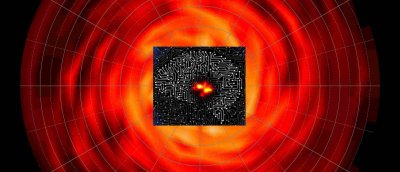R&D COMPUTING - GPU-based Deep Learning Data Analysis

Within the framework of the joint project "Innovative Digital Technologies for the Exploration of Universe and Matter" FIAS concentrates on GPU-based Deep Learning (DL) data analysis for CBM
The project is part of a network funded by the BMBF as an "ErUM-Data" pilot project. The FIAS-funded subproject is assigned to area C, "Deep Learning, gaining knowledge through well-founded data-driven methods". The project involves the development of powerful analysis tools for the CBM and HADES research programs at the acceleartors of GSI and at the international Facility for Antiproton and Ion Research (FAIR). New GPU-based Machine Learning (ML) / Deep Learning (DL) tools are being developed together with the Institute for Theoretical Physics at the Goethe University in Frankfurt. This novel analysis approach is now used to extract hidden information and structures as well as non-linear correlations from complex raw data to understand the underlying physics.
In its subproject, the FIAS is working on various topics:
- „Development of ML/DL tools to detect the QCD phase transition from realistic simulations“;
- „Consideration of simplified acceptance and efficiency limitations of the detector“ and
- „Analysis of 'realistic' model results after detector simulations and implantation of the analysis tools in CBMroot“.
Project Leader and Cooperation Partners
Project lead and contributing working group at FIAS
Project lead:
Prof. Dr. Dr. h.c. mult. Horst Stöcker
Contributing working group: "Deep Thinkers group"
Dr. Jan Steinheimer-Froschauer
Dr. Kai Zhou
Cooperation Partners and Associated Partners
Cooperation Partners:
- Ludwig-Maximilians-Universität München
- Albert-Ludwigs-Universität Freiburg
- Bergische Universität Wuppertal
- Friedrich-Alexander-Universität Erlangen-Nürnberg
- Goethe-Universität Frankfurt
- Johannes Gutenberg Universität Mainz
- Karlsruher Institut für Technologie
- Rheinisch-Westfälische Technische Hochschule Aachen
- Universität Hamburg
Associated Partners:
- Deutsches Elektronen-Synchrotron (DESY) Hamburg
- Forschungszentrum Jülich (FZJ)
- GSI Helmholtzzentrum für Schwerionenforschung GmbH
- Georg-August-Universität Göttingen
- Rheinische Friedrich-Wilhelm-Universität Bonn
- Westfälische Wilhelms-Universität Münster
